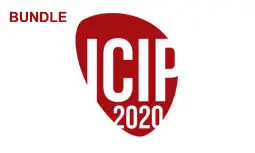GUIDED SPARSE FEATURE MATCHING VIA COARSELY DEFINED DENSE MATCHES
Niloufar Pourian, Oscar Nestares
-
Members: FreeSPS
IEEE Members: $11.00
Non-members: $15.00Length: 12:52
28 Oct 2020
This paper addresses the problem of finding semi-dense feature correspondences with better than quarter-pixel accuracy across stereo images in an efficient manner. Having a large number of correspondences is critical for many computer vision applications as more observations allow to better model application parameters. Also, performance of many applications can greatly improve with correspondences of at least quarter-pixel accuracy. However, defining a large number of quarter-pixel accurate feature correspondences effectively is still a challenging task. Specifically, dense matching attempts to find dense correspondences; while it is attractive to have a feature correspondence per pixel in a given image, such approaches are typically computationally heavy with at most half-pixel accuracy. In contrast, sparse feature matching approaches are computationally less expensive and generally benefit from better than quarter-pixel accuracy for the defined correspondences, but, they define correspondences for only a limited number of pixels in an image. In addition, they tend to have a higher rate of mismatches as they do not consider spatial smoothness at their core. This paper introduces a new framework to address the above shortcomings, aiming to significantly increase the number of correct matches with at least quarter-pixel accuracy, while keeping the computational cost smaller than that of dense matching alone.



